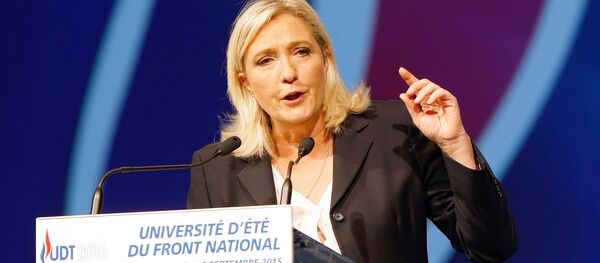In an interview with Sputnik Germany, Henkel said that such a trend is also typical for the EU, although he admitted that he was still "more than surprised" about the outcome of the US vote.
"In recent years, traditional democracy has become kind of unpredictable," Henkel said, adding that a lot of unexpected developments have been taking place in Europe over past few years.
In particular, Henkel referred to Brexit, and the popularity of the right-wing parties "National Front" and "Alternative for Germany" in France and Germany, respectively.
"Perhaps this is how voters — disappointed in the establishment and willing to teach them (political elites) a lesson demonstrate their hidden joy," Henkel said. "And this is not only because they want to choose someone they shouldn't choose. But also because they want to show: I do absolutely the opposite of what everyone is waiting for," Henkel believes.
The right-wing Alternative for Germany (Afd) has already made significant gains in state elections in Germany this year, and is also upbeat ahead of the German federal elections next autumn.
For their turn, political leaders in France have acknowledged the popularity of the populist party Front National and the fact the its leader Marine Le Pen "can win" next year's presidential elections.

